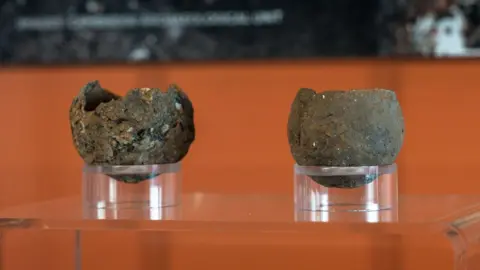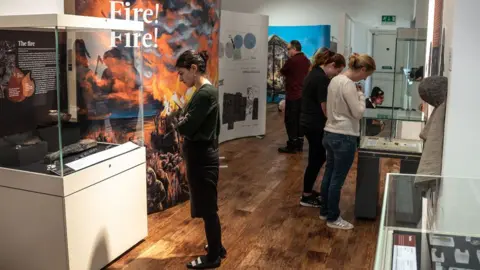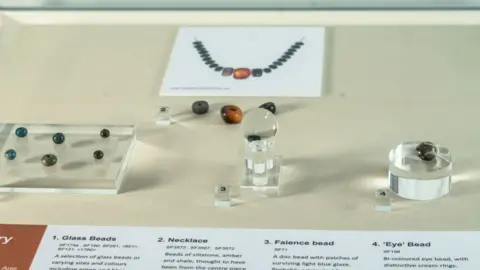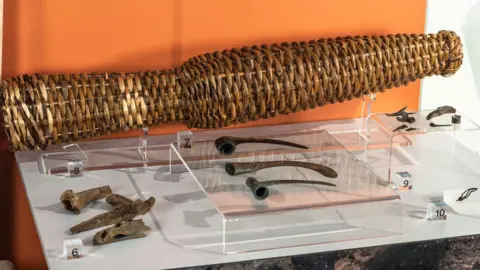[ad_1]
 Martin Rowe/Peterborough Museum and Art Gallery
Martin Rowe/Peterborough Museum and Art Gallery Martin Rowe/Peterborough Museum and Art Gallery
Martin Rowe/Peterborough Museum and Art GalleryThe exhibition, which gives a remarkable insight into the way people lived in the Bronze Age, has attracted the museum’s highest visitor numbers for eight years.
The artefacts were unearthed at a Bronze Age settlement of wooden roundhouses built over a river channel at Must Farm at Whittlesey, Cambridgeshire.
Domestic items were deposited into the river silt after the settlement caught fire, where they remained until they were excavated eight years ago.
Fleeing villagers left behind the largest collection of Bronze Age artefacts ever discovered in the UK, including 200 wooden objects, more than 150 fibre and textile items, 128 pottery vessels and about 90 pieces of metalwork.
The excavation’s discoveries are of national importance, yet its finds are staying local, about eight miles (12km) from where they were found.
 Martin Rowe/Peterborough Museum and Art Gallery
Martin Rowe/Peterborough Museum and Art GalleryExhibits include Bronze Age pottery fragments painstakingly recreated to reveal cooking ware and fine cups and bowls and a pot with a preserved, freshly cooked meal inside.
Tony Callandine, Historic England’s east regional director, said the organisation was delighted it could support an extended run of the exhibition.
“Seeing objects that were used for cooking and everyday home life so long ago stirs the imagination and brings communities from the past closer to us today,” he said.
 Martin Rowe/Peterborough Museum and Art Gallery
Martin Rowe/Peterborough Museum and Art Gallery[ad_2]
Source link




